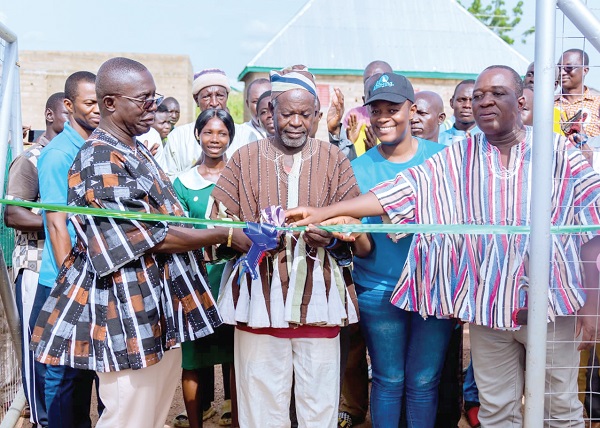
Roll-out of ENWASH project: 3 ‘Thirsty’ Upper East communities get potable water - After many years of struggle
Access to good drinking water continues to be a major challenge for many communities in the Upper East Region.
Residents of these communities have, due to the scarcity of potable water, been forced to rely on age-old dried-up boreholes and other unclean sources to draw water to use for their daily activities, with its attendant health consequences.
Community members in Kongo in the Tempane District, Tilli in Bawku West and Songo in the Garu District are among thousands of residents across the region who continue to struggle for water on a daily basis.
However, residents in the three communities can now heave a sigh of relief after many years of struggling for water, due to the provision of water systems for the communities and their health facilities, which they have longed for, for so many years.
The water facilities are expected to serve more than 8,000 residents in Kongo, over 13,000 people in Songo and more than 6,000 residents in Tilli.
Previously, members of these communities relied on the age-old boreholes, which now do not only have low yields but also unwholesome water for their daily household and other activities.
Due to the pressure on the boreholes, community members, especially women and children, had to join long queues daily around the boreholes to fetch water, a development that was unbearable for the people.
The scarcity of potable water in the communities was a source of worry for the thousands of residents, as they were compelled to spend long hours around the water points in their quest to get water for their activities.
Health facilities
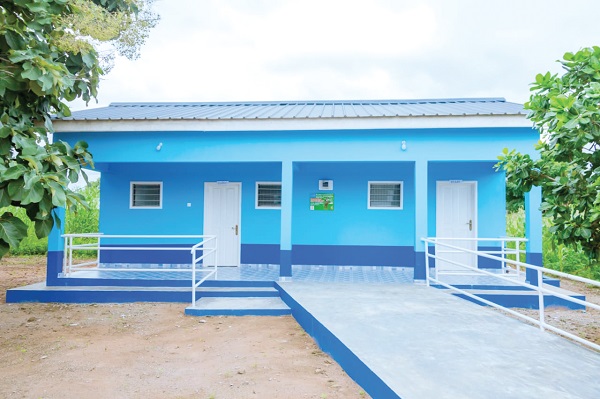
The health facilities which serve the communities were also not left out of the lack of water, making the provision of quality health services to the thousands of residents a herculean task.
Health workers were also forced to queue with the community members around nearby boreholes and had to always wait for their turn.
Subsequently, the water from the boreholes became the source of water for cleaning the facilities, especially at the maternity units, during sterilisation of medical instruments, service delivery and handwashing.
Also, relatives of patients at the facilities had no option but to go to nearby boreholes, fetch water and tie them to motorbikes to transport to the health facilities for use by relatives on admission.
To address this problem, WaterAid Ghana, an NGO with a focus on water, sanitation and hygiene (WASH), as part of the Enhancing Water, Sanitation and Hygiene (ENWASH) project, in partnership with Global Communities, has handed over an integrated limited solar mechanised water system to serve both the health facilities and the three beneficiary communities.
The project, which was funded by the United States Agency for International Development (USAID), also includes seven-unit water closet toilet facilities for each of the health facilities, to serve staff and patients.
Furthermore, a 4.5 cubic metre double chamber incinerator has been installed at the Basyonde Health Centre, also in the same district, to enable the facility to safely dispose of its medical waste and prevent the spread of infections.
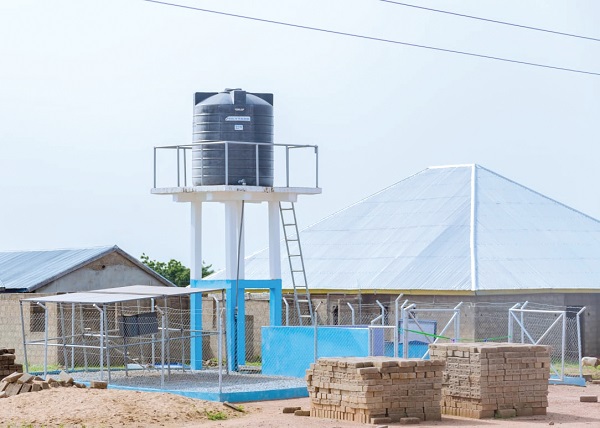
Address critical gaps
At separate ceremonies to commission the new water projects, the Country Director, WaterAid Ghana, Ewurabena Yanyi-Akofur, said the ENWASH project aims to address critical gaps in WASH services, particularly in rural areas where access remained unequal.
She said in Ghana, while 68 per cent of health facilities had access to safe water, significant disparities persisted, adding, “Many facilities still rely on community boreholes or have no access to sanitation services at all.”
She expressed worry that this situation posed serious risks to maternal and child health, as well as overall quality healthcare and said that inadequate WASH services had been linked to maternal deaths and stagnant neonatal mortality rates.
To achieve the desired reduction, she said stakeholders must ensure that facilities, especially the maternity units, have access to clean water, proper sanitation and hygiene services.
The Country Director added that access to clean water, sanitation and proper waste disposal were fundamental to the health and safety of health workers and patients, as well as ensured that quality care was provided for vulnerable groups like pregnant women and newborns.
“As we hand over these facilities, we urge the health directorate and the district assembly to ensure the proper management and maintenance, as access to WASH services is a shared responsibility,” she noted.
Gratitude
The Regional Director of Health Services, Dr Samuel K. Boagye-Boateng, said the availability of water was essential to health care delivery and expressed gratitude to WaterAid Ghana for the timely support.
“As a directorate, we do appreciate the intervention by the organisation, as it would go a long way to enhance the provision of health services and improve the health needs of the people as well,” he said.
Further, Dr Boakye-Boateng urged the community members to jealously guard the project and maintain it as well, to motivate WaterAid Ghana to undertake similar projects in other communities.
The District Chief Executive for Tempane, Issaka Anabida, commended the collaborative efforts between the community, the health directorate and WaterAid towards the execution of the project for their mutual benefit.
For his part, the Bawku West District Director of Health Services, Cosmos Atowaje Minyilla, said the provision of the water facility would not only make the provision of healthcare easier but would improve the health needs of the people.
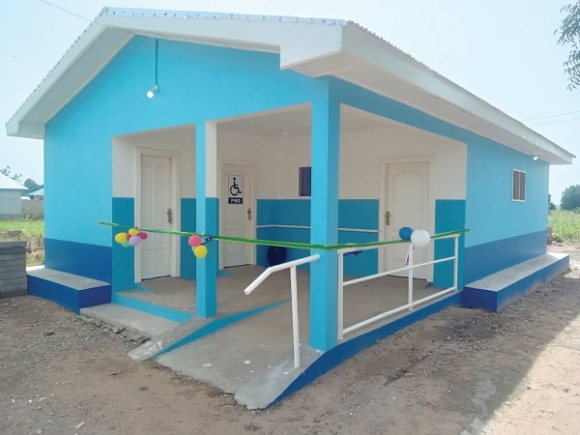
Upgrade facility
The Chief of Kongo, Abubakar Amoah Duut, pleaded with the government to consider upgrading the facility to a health centre to serve the growing population in the community.
He indicated that the CHPS compound was too small and that the long queues at the facility continued to force the residents to seek medical care at nearby health facilities. He further commended the benefactors for providing the community with a potable water system.
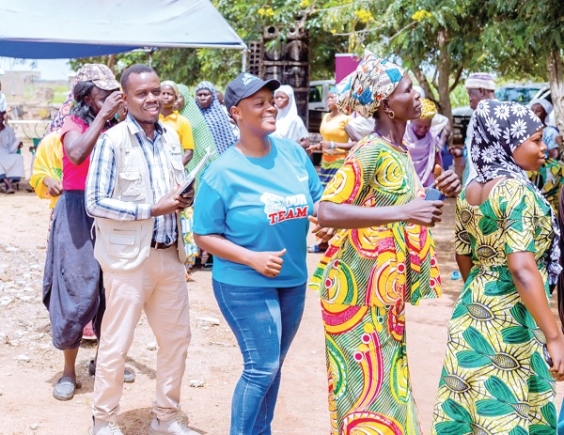
The health officer in charge of the CPHS compound, Godfred Teye Anyorgbor, in an interview, said hitherto, the provision of health services in the absence of water was very challenging for the workers.
However, he stated that with the intervention by WaterAid Ghana, water was now readily available to facilitate health delivery, saying, “In the absence of water at the facility, it was very difficult to run some laboratory services.”
A community member, Abigail Kanjeib, lamented the suffering she went through when she delivered at the facility some few years ago and expressed delight that the water problem had been addressed to bring relief to them.
“I must tell you that it was an eyesore for the relatives of patients to bring water for it to be used by patients on admission at the health facility,” she said.
Another resident, Elizabeth Yendukua, who could not hide her excitement, thanked WaterAid Ghana and its sponsors for coming to their aid in their quest to access healthcare in the community.
Writer’s email:
